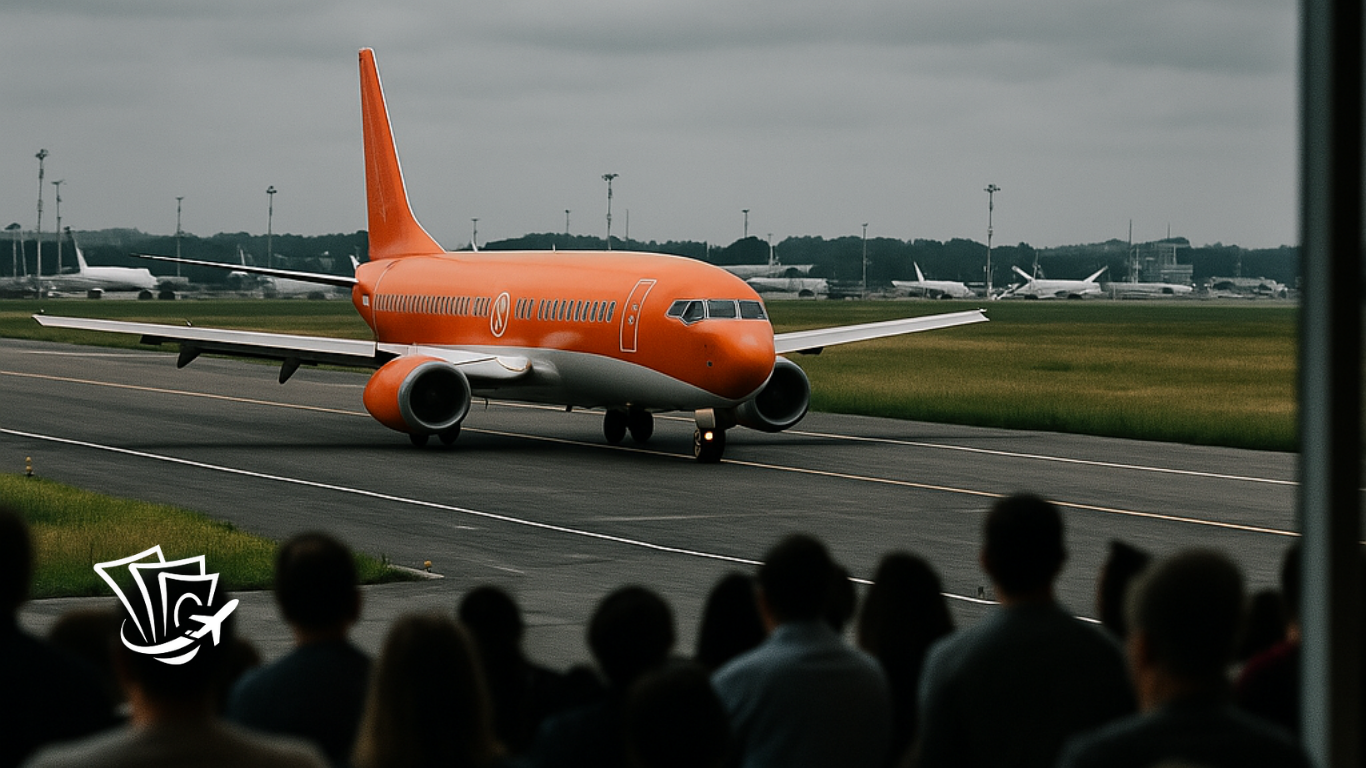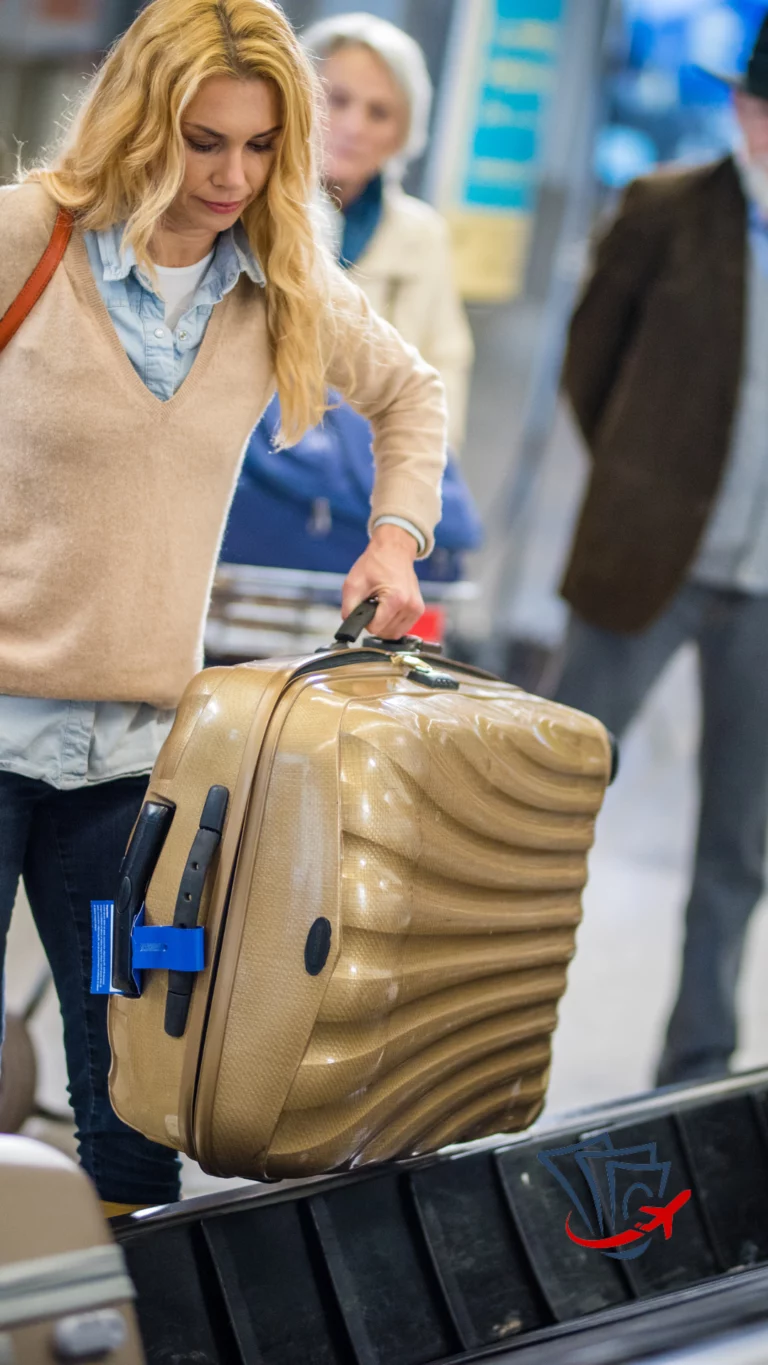Table of Contents
The first quarter of 2025 saw a significant increase in air traffic in Italy, accompanied by a proportional increase in disruptions. The analysis conducted by Rimborso al Volo, integrated with official data from ENAC, Eurocontrol and IATA, offers a detailed picture of the current situation, highlighting the main critical issues in the Italian airport system and providing useful information for passengers affected by delays, cancellations and other disruptions.
Air traffic and disruptions: the big picture of Q1 2025
Official data from ENAC show that Italian air transport experienced significant growth in the first quarter of 2025. About 13.5 million passengers were handled in January, an increase of 8 percent compared to the same period in 2024 and even 13 percent compared to the pre-pandemic period (2019). Overall, 111,110 flights were operated in the first three months of the year, marking a 3 percent increase over the previous year. Traffic distribution saw a prevalence of international flights (66 percent of the total), split between EU (40 percent) and non-EU (26 percent), while domestic traffic accounted for 34 percent of the total. Rome Fiumicino confirmed itself as Italy’s leading airport with 3.2 million passengers and a 24 percent market share.
This significant growth has put pressure on Italy’s airport infrastructure, creating what ENAC President Pierluigi Di Palma called a real “growth crisis.” In an interview with Corriere della Sera on March 5, 2025, Di Palma explained that “more people than expected are leading to difficult flow management situations at some airports in Italy,” with particular reference to Bologna and Naples, which recorded traffic increases of 12 percent and 15 percent, respectively, over the previous year.
According to Eurocontrol data, in the first quarter of 2025, flights in Europe experienced an average delay of 17.3 minutes, with an average punctuality (flights arriving within 15 minutes of the scheduled time) of 72.4 percent, down from 75.8 percent in the same period in 2024. Italy ranks slightly below the European average, with 68.5 percent punctuality, placing 17th among the 27 European Union countries.

An analysis of airline disruptions according to Reimbursement on the Flight
An analysis of refund requests received by Rimborso al Volo in the first quarter of 2025 provides a detailed snapshot of the Italian situation. Out of the total number of requests received, as many as 93 percent involved delays of more than 3 hours and cancellations, while the remaining 7 percent related to lost or damaged luggage. These figures are in line with IATA’s global statistics, which indicate an average rate of problem luggage of 4.35 per 1,000 passengers, with an average time to return lost luggage of 1.8 days and a percentage of permanently lost luggage of 7 percent out of the total lost luggage.
The temporal distribution of requests shows a significant concentration in January, which alone recorded 47 percent of total requests, followed by March with 27 percent and February with 26 percent. This January peak coincides with the strikes that affected the Italian airline industry at the beginning of the year, as well as the particularly bad weather conditions that characterized the winter period throughout Europe.
Strikes: impact and consequences on Italian air transport
The first quarter of 2025 was marked by as many as 8 strike events in the Italian air transport sector, resulting in the cancellation of about 470 flights. Considering the average load factor estimates provided by Enac, the average fill rate of flights in italy is 71.4% in 2024 (up from the 63% calculated for 2023) and the average capacity of Italian air vehicles of 180 seats, we can estimate an involvement of more than 65,000 passengers. There were three main strikes that had a particularly significant impact:
- Jan. 10, 2025: A 24-hour strike involving the staff of Milan Linate, Milan Malpensa and Venice Marco Polo airports, affecting in particular Airport Handling, SPD and Aviation Service staff. This strike caused the cancellation of about 200 flights, impacting more than 30,000 passengers.
- Feb. 24, 2025: Strike by EasyJet and Aeroitalia airlines that resulted in the cancellation of about 120 flights, affecting more than 14,000 passengers with delays and cancellations.
- March 24, 2025: Strike involving Vueling staff and handling companies associated with Assohandlers, including Airport Handling, Aviapartner, Aviation Services and other companies operating at major Italian airports, with about 150 flights canceled.
It is important to note that under EC Regulation 261/2004, passengers have different rights depending on whether the strike is internal to the airline or external. In the former case, they are entitled to monetary compensation as well as assistance and ticket refund; in the latter case, which is considered an “exceptional circumstance,” they are entitled only to assistance and ticket refund, but not to monetary compensation.

The map of disruptions: most problematic airports and routes
Starting hubs with greater criticality
The analysis of claims by departure airport shows a significant concentration in the main Italian hubs. Milan, considering all its airports, is confirmed as the most problematic area with 14.6 percent of the total number of requests, divided between Milan Malpensa (10.4 percent), Milan Orio al Serio (2.6 percent) and Milan Linate (1.6 percent). Rome follows with 8.4 percent of requests, distributed between Rome Fiumicino (7.1 percent) and Rome Ciampino (1.3 percent).
Also significant is the presence of Catania, which, with 6.2% of requests, is confirmed as one of the most problematic airports, in line with what ENAC has highlighted regarding the difficulties of managing flows at some regional airports. Istanbul, on the other hand, represents a special case, with 2.9 percent of requests, highlighting how problems can also occur at major international connection hubs.
Other departure airports with high disruption rates include Bologna (2.8 percent), London (2.5 percent), Bari (2.1 percent), Palermo (1.5 percent), Barcelona (1.3 percent) and Paris (1.1 percent).
The most problematic airlines: analysis and comparison
An analysis of the airlines most involved in claims received by Rimborso al Volo in the first quarter of 2025 shows a clear predominance of low-cost airlines, in line with their market share, which, according to ENAC data, accounts for 60 percent of Italian air traffic.
Ryanair is confirmed as the airline with the highest number of reports, accounting for 25.4 percent of total requests, followed by Wizzair with 16.1 percent and EasyJet with 7.8 percent. Also significant is the presence of Turkish Airlines, which with 7.2 percent of requests ranks fourth, despite a lower market share than the top three airlines.
ITA Airways, the Italian flag carrier, accounted for 3.9 percent of requests, followed by Lufthansa With 2.9 percent, Aeroitalia with 2.3 percent, Vueling with 2.3 percent, Air France with 1.8 percent and Volotea With 1.5 percent.
It should be emphasized that these figures should be interpreted considering the volume of flights operated by each airline. Ryanair, being the leading operator in Italy with more than 35 million passengers carried in 2024, naturally has a higher absolute number of claims. However, when analyzing the ratio of claims to passengers carried, significant differences emerge among the various companies.
Based on available data, Wizzair has the most unfavorable ratio, with about 3.1 claims per 10,000 passengers carried, followed by Turkish Airlines with 2.8 and Ryanair with 2.6. In contrast, traditional airlines such as ITA Airways and Lufthansa have more favorable ratios of 1.9 and 1.7 claims per 10,000 passengers, respectively.
The main causes of airline disruptions: an in-depth analysis
According to Eurocontrol data, in the first quarter of 2025 the main causes of delays in the European air system were:
- Inclement weather conditions: 25% of delays
- Airline problems: 22%
- Airport problems: 20%.
- Air traffic control capacity: 18%.
- Traffic flow management: 15%.
This distribution is broadly in line with what was observed in Italy, where the winter months saw particularly adverse weather conditions, especially in the north, with frequent fog in Milan and Venice causing significant delays.
Infrastructure problems are another major cause of inefficiencies, as highlighted by ENAC President Di Palma, who pointed out that some Italian airports are handling traffic volumes in excess of their optimal operating capacities. This is particularly evident at the airports of Bologna, Naples, Catania and Palermo, which have seen significant traffic increases without corresponding infrastructure adjustments.
Strikes, as already highlighted, were another significant cause of disruptions, with eight events in the first quarter of 2025 causing the cancellation of about 470 flights and involving more than 65,000 passengers.
Finally, the impact of so-called “overbooking,” a practice still widespread among airlines that accept reservations beyond the number of seats actually available, should not be overlooked. According to a recent survey by the Italian Antitrust Authority, in 2024 about 0.8 percent of flights in Italy recorded cases of denied boarding due to overbooking, with an estimated impact on about 300,000 passengers a year who are entitled, as in cases of delay or cancellation, to between €250 and €600 in compensation depending on the route.
The economic impact of airline disruptions: a million-euro loss
The economic value of reimbursement claims handled by Reimbursement on Flight in the first quarter of 2025 shows an average requested reimbursement of about €350 per passenger and an average of 1.6 passengers per file. This figure represents only the tip of the iceberg, considering that, according to a study by the European Commission, less than 15 percent of passengers who experience inefficiencies actually file for reimbursement.
Projecting these figures on the entire Italian air system, it can be estimated that the total value of disruptions in the first quarter of 2025 is around 15-20 million euros, considering only the monetary compensation provided for in EC Regulation 261/2004. To this figure must be added the indirect costs incurred by passengers for overnight stays, alternative transportation, meals and other inconveniences, which can be estimated at an additional 10-15 million euros.
Comparison with previous years shows an interesting trend in the data collected by Reimbursement on Flight:
- First quarter 2023: maximum peak demand in the period analyzed
- First quarter 2024: significant drop in applications from previous year
- First quarter 2025: 100% increase over 2024, but still less than the 2023 peak
This 100 percent increase over 2024 is in line with the increase in air traffic, but still remains significantly lower than the peak in 2023, when the European air system was still facing post-pandemic difficulties, with staff shortages and haphazard resumption of operations.
The 2022 data, still affected by pandemic-related restrictions, show a peculiar picture, with about a quarter of claims resulting in only partial reimbursements of expenses due to COVID-19-related cancellations.

Passenger rights: what EC Regulation 261/2004 provides for.
In case of airline disruptions, passengers are protected by EC Regulation 261/2004, which provides specific compensation according to the type of inconvenience suffered. It is essential to know these rights in order to obtain the refunds due.
Rights in case of long delay
In case of delayed departure, passengers are entitled to:
- For delays of at least 2 hours for flights up to 1,500 km, 3 hours for intra-EU flights of more than 1,500 km and all other flights between 1,500 and 3,500 km, or 4 hours for all other flights: assistance in the form of meals and beverages, two phone calls or messages, and, in the case of scheduled departure the next day, hotel accommodations and transportation from the airport to the hotel and vice versa.
- For delays of 5 hours or more: option to forfeit the flight with full refund of the ticket for the portion of the trip not made.
- For arrival delays of 3 hours or more: compensation between 250€ (for flights up to 1,500 km) and 600€ (for flights over 3,500 km), unless the delay is due to “exceptional circumstances.”
Rights in case of cancellation
In case of flight cancellation, passengers are entitled to:
- Full ticket refund within 7 days or re-routing on an alternate flight
- Assistance (meals, drinks, hotel accommodation if needed)
- Monetary compensation (250€ to 600€ depending on the distance of the flight), unless:
- Cancellation has been communicated at least 14 days in advance
- The cancellation has been communicated between 7 and 14 days in advance and an alternative flight has been offered with departure no more than 2 hours earlier and arrival no more than 4 hours later than the originally scheduled time
- Notice of cancellation has been given less than 7 days in advance and an alternative flight has been offered with departure no more than 1 hour before and arrival no more than 2 hours after the originally scheduled time
- The cancellation is due to “exceptional circumstances”
Rights in case of denied boarding (overbooking)
In case of denied boarding due to overbooking, passengers are entitled to:
- Refund of ticket price within 7 days or re-routing on an alternate flight
- Assistance (meals, drinks, hotel accommodation if needed)
- Monetary compensation (250€ to 600€ depending on the distance of the flight)
Rights in case of lost or damaged luggage
In case of lost, damaged or delayed delivery of checked baggage, passengers are entitled to:
- Compensation up to about €1,300 for lost or damaged luggage
- Reimbursement of basic necessities in case of delayed baggage delivery
To enforce these rights, a Baggage Irregularity Report (PIR) must be filed with the Lost and Found office at the arrival airport immediately after landing or, at the latest, within 7 days in case of damage and 21 days in case of delayed delivery.
To learn more about rights in the event of airline delay, cancelled flight, overbooking o lost baggage, you can consult the relevant sections of the Refund on Flight website.

Forecasts for the second quarter of 2025: what scenarios?
Projections for the second quarter of 2025 indicate a likely further increase in air traffic ahead of the summer season. Assaeroporti estimates that the number of passengers in April-June could exceed 50 million, an increase of 5-7 percent over the same period in 2024.
ENAC has launched several initiatives to improve the situation, focusing in particular on an in-depth audit for Summer 2025 and monitoring the most congested airports such as Bergamo, Venice, Bologna, Naples, Catania and Palermo. In a meeting with the main operators in the sector, the Authority decided to take specific measures to “manage flights differently, favoring those with transit passengers,” in order to reduce inconvenience.
On the strike front, at least three labor unrest events have already been announced for April 2025, including a national air transport strike scheduled for April 9, which could have a significant impact on the system.
Weather forecasts for the April-June 2025 quarter indicate generally more favorable conditions than in the winter months, with an expected reduction in weather-related delays. However, the increase in traffic typical of the spring-summer season could offset this improvement, keeping the overall number of disruptions high.
Flight Reimbursement experts believe that without significant structural interventions, disruptions could increase further during the peak summer months, with particular criticality expected at the airports of Catania, Palermo, Bari and Cagliari, which are traditionally characterized by a strong seasonal increase in tourist traffic.
Practical tips for travelers: how to protect yourself from airline disruptions
To minimize the impact of possible airline disruptions and maximize the likelihood of getting due refunds, here are some practical tips for travelers:
Before the trip
- Travel Insurance: Taking out insurance that specifically covers delays, cancellations, and lost luggage can offer additional protection, especially for important or expensive trips.
- Choose flights carefully: Whenever possible, opt for direct flights in the early hours of the day, which statistically are less likely to experience cumulative delays. Avoid tight connections, allowing at least 2-3 hours between flights to minimize the risk of missing a connection.
- Monitor flight status.: Sign up for airline alerts and regularly check the status of your flight in the days leading up to departure to be informed of any changes or cancellations in a timely manner.
- Know your rights: Familiarizing oneself with EC Regulation 261/2004 and the rights provided in case of airline disruptions enables one to act promptly and in an informed manner in case of problems.
During the disruption
- Document everything: Keep all communications received from the airline, boarding passes, receipts for expenses incurred due to the disruption (meals, lodging, alternative transportation), and, if possible, obtain a written statement about the disruption from airline personnel.
- Demand assistance: In case of long delay or cancellation, demand assistance as provided by EC Regulation 261/2004, including meals, drinks and, if necessary, hotel accommodation and transportation.
- Communicate with the company: Immediately inform the airline of the disruption, preferably in writing (email, form on website) to keep track of the communication.
After the disruption
- File a formal complaint: Send a formal complaint to the airline within 7 days of the event, detailing the inefficiency suffered and explicitly requesting the compensation provided by EC Regulation 261/2004.
- Evaluate professional assistance: If the airline does not respond within 30 days or rejects the claim, consider professional assistance such as Reimbursement on Flight to handle the file and increase the likelihood of success.
Conclusions: a system under pressure
Analysis of aviation disruptions in the first quarter of 2025 reveals an Italian airport system under pressure, with a significant increase in problems from the previous year. The combination of increased traffic, inadequate infrastructure and staff instability has created critical conditions for passengers.
In this context, knowing one’s rights and accessing specialized services such as Reimbursement on Flight are key tools for travelers. With compensation of up to €600 per passenger, it is essential not to waive what is provided by European regulations.
Forecasts for the coming months suggest that despite the interventions announced by ENAC, the situation may remain critical, especially at the airports of Milan, Rome, Catania and Bologna. Travelers are therefore advised to plan their travels carefully and prepare adequately for possible disruptions.
Note: The percentage data presented in this article regarding claims refer only to those received by Rimborso al Volo during January-March 2025 and do not necessarily reflect the total number of disruptions that occurred in the Italian airline industry.
FAQ
Why are planes always late?
Aircraft delays in the first quarter of 2025 were mainly caused by three factors: staff strikes (about 40 percent of cases), airport congestion (30 percent), and adverse weather conditions (25 percent). The remaining 5% was attributable to technical problems with aircraft.
When am I entitled to a refund if my flight was canceled?
You are entitled to compensation if the cancellation is not reported at least 14 days in advance and is not due to exceptional circumstances. The compensation varies from 250€ for flights up to 1,500 km to 600€ for flights over 3,500 km. In any case, you are always entitled to a refund of your ticket or re-routing on an alternative flight.
What to do in case of lost luggage?
You must immediately report the loss to the Lost & Found office at your arrival airport by completing the Property Irregularity Report (PIR). Keep a copy of the PIR, your baggage receipt, and any receipts for necessity purchases you need to make. If your luggage is not found within 21 days, it is considered lost and you can claim compensation of up to about €1,300.
Am I entitled to a refund if there was a strike?
It depends on the type of strike. If the strike involves airline personnel, you are entitled to monetary compensation. If, on the other hand, it involves air traffic control or airport staff, you are entitled to assistance and ticket reimbursement, but not to monetary compensation.
How long do I have to request a refund?
According to Italian law, you have up to 2 years from the date of the disservice to claim monetary compensation. However, it is advisable to act as soon as possible to increase your chances of success.


